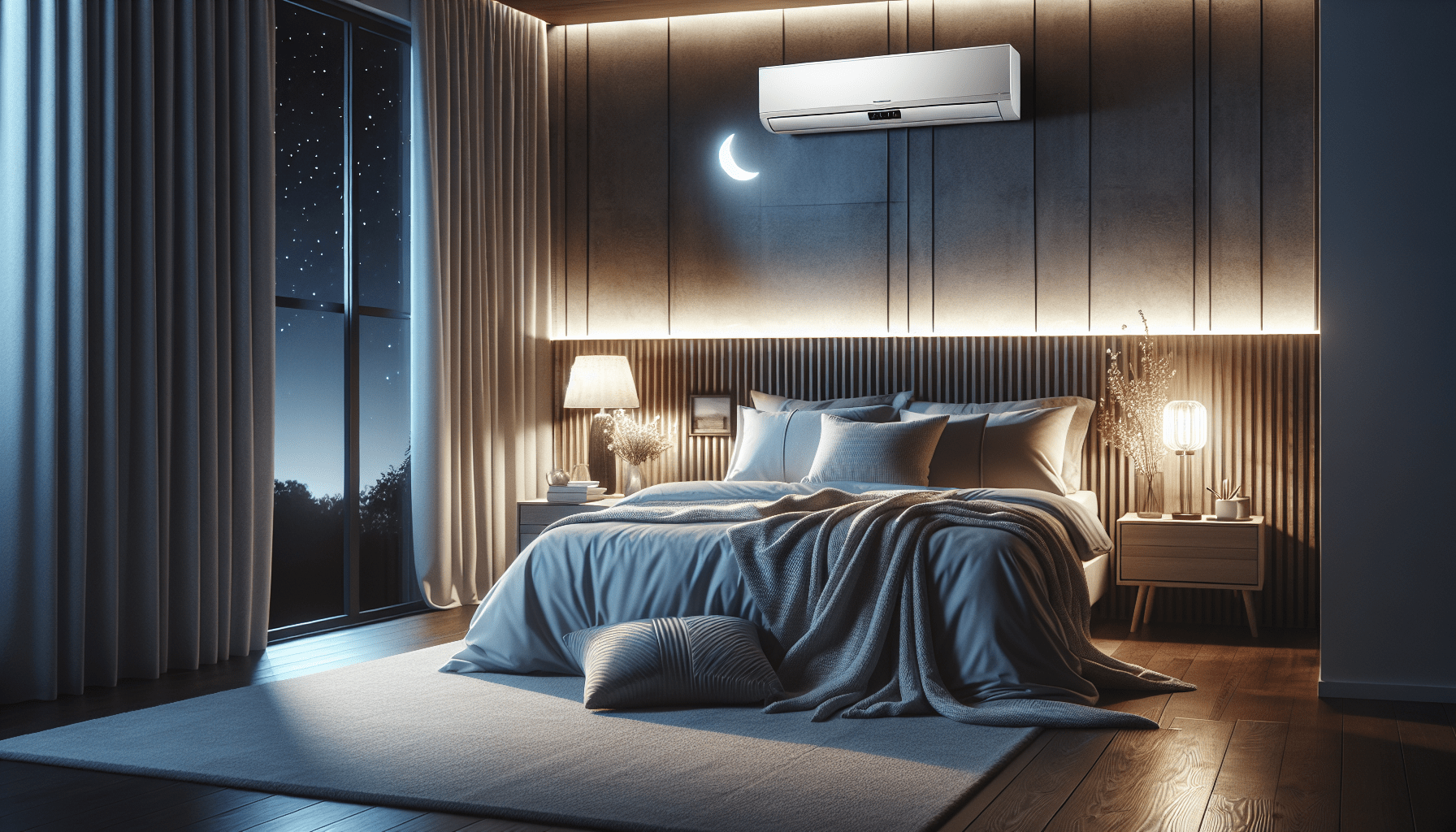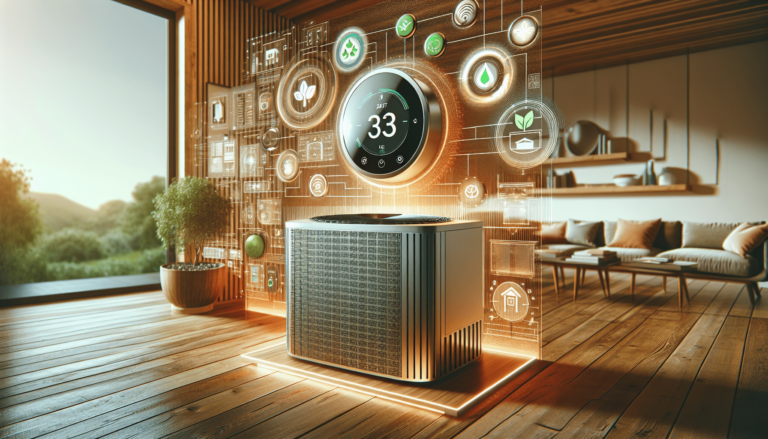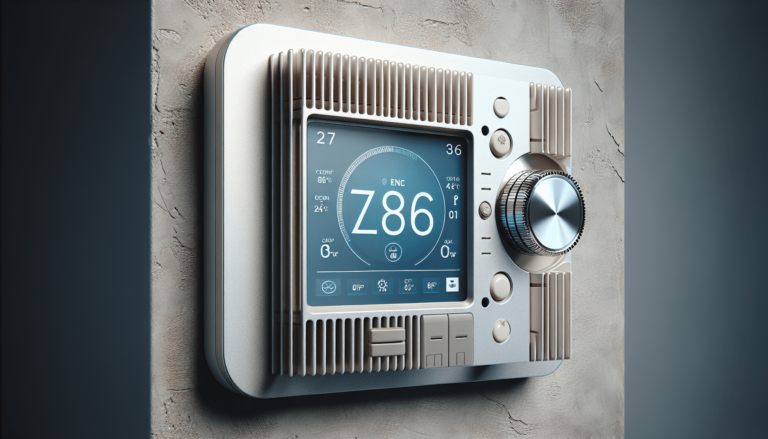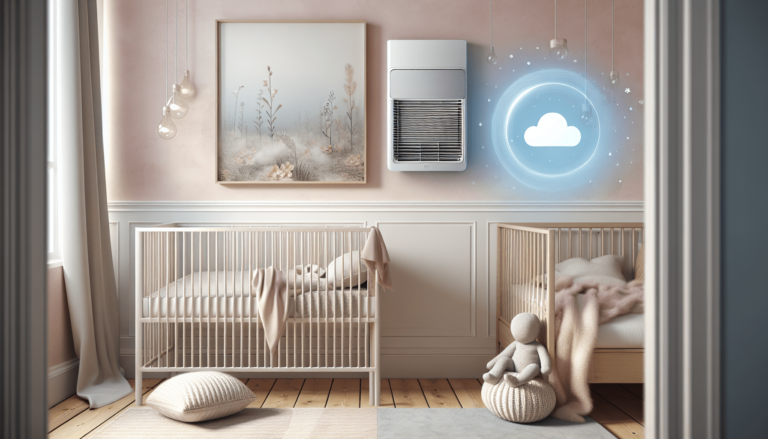

HVAC Services
Get Professional Repairs From The Area's Trusted HVAC Technicians. Ask About Our Services! We Offer Professional Heating & Cooling System Repairs And Guarantee Long-Lasting Results.
Got Question? Call us: (850) 678-2665Financing
HVAC And Sleep: Creating The Ideal Nighttime Environment
Discover how your HVAC system impacts sleep quality and learn simple adjustments for restful nights. Enhance comfort, airflow, and air quality for ideal slumber.

Have you ever wondered how your heating, ventilation, and air conditioning (HVAC) system affects your sleep? It is a surprising connection that many overlook, yet it holds great potential for improving your nightly rest. Let’s explore how you can adjust your environment to promote better sleep. By understanding the role of HVAC, you can make simple changes to your setup for more restful nights.

The Connection Between HVAC and Sleep
Your body is sensitive to climate changes, especially during sleep. The ideal sleeping environment involves not only comfort but also the right temperature and air quality. Your HVAC system plays a crucial role in setting this atmosphere. It affects room temperatures, humidity levels, and even air cleanliness.
Temperature Control
The optimal temperature for sleep ranges between 60 and 67 degrees Fahrenheit. Deviating too far from this range can disrupt sleep. Your body’s natural decrease in core temperature during sleep means a cooler room can make you more comfortable. Your HVAC system can help maintain a stable temperature, ensuring that your bedroom remains within the ideal range.
Humidity Levels
Humidity plays an awkward but significant role in comfort. High humidity feels muggy, while low humidity dries out your skin and sinuses. An HVAC system with a dehumidifier or humidifier can manage this aspect. Aim for a humidity level around 30-50%. This range helps prevent mold and maintains your health, allowing you to breathe easily while sleeping.
How Air Quality Affects Sleep
Air quality is another vital element often overshadowed by temperature concerns. Dust, pet dander, and other pollutants can disturb your breathing and cause allergies. These can lead to interrupted sleep, and no one wants that.
Importance of Clean Air
Maintaining good air quality involves regular filter changes in your HVAC system. Filters trap particles that could otherwise circulate in your home. Clean air filters ensure that you breathe easier, with fewer allergens triggering reactions overnight. Consider high-efficiency particulate air (HEPA) filters for more effective purification.
Ventilation and Fresh Air Flow
Proper ventilation is another aspect of air quality. An efficient HVAC system circulates air throughout your room, ensuring you always have fresh air. This helps limit carbon dioxide buildup, which can lead to restless sleep. By simply setting your HVAC system to circulate air a couple of times overnight, you can vastly improve the air quality in your room.
Creating an Ideal Nighttime Schedule with HVAC
You may not realize it, but your HVAC system can work on a schedule to enhance your sleep. Programmable thermostats let you set different temperatures for various times of the day, aligning with your sleep cycle.
Precision with Programmable Thermostats
You can program your thermostat to lower the temperature a bit before bedtime. This prepares your bedroom environment to match your body’s natural need for a cooler setting. Set it to gradually increase the temperature just before you wake, easing your transition from deep sleep to wakefulness.
Smart HVAC Systems
Smart thermostats take it a step further. They learn your schedule and can make automatic adjustments to optimize your home’s environment based on your lifestyle. Some models even adapt to weather changes, ensuring your sleep environment is perfect every night.
Practical Steps to Improve Sleep with HVAC
You do not have to overhaul your entire HVAC system to improve sleep. Simple adjustments can make a massive difference to the quality of your rest.
Regular Maintenance is Key
Regular maintenance ensures that your system works efficiently. Clean your air filters monthly if you have pets or allergies, and every couple of months otherwise. An annual professional inspection can prevent unexpected breakdowns and improve system longevity.
Noise Consideration
A quieter HVAC system can help you sleep better. Consider choosing units designed for quiet operation, or use soundproofing materials around noisy equipment. Minimizing noise reduces disruptions during the night.
Personal Room Adjustments
Everyone has a unique perception of comfort. You may want a slightly different temperature than someone else. Installing separate zones in your HVAC system allows different temperatures in various parts of the home. This way, everyone can have their ideal sleeping climate.

How to Choose the Right HVAC System for Sleep
If you are considering upgrading your HVAC system, consider your sleep needs as part of the equation.
Size and Capacity
Ensure the system is the right size for your home. A system too small will struggle and overwork, while an oversized system will cycle on and off too quickly, wasting energy and failing to dehumidify properly.
Energy Efficiency
Look for systems with high energy efficiency ratings. They cost less to run and have less environmental impact. Efficiency can significantly affect your comfort, reducing operational noise and providing more consistent temperature control.
Advanced Features
Seek systems offering features like variable speed fans, which adjust airflow for optimal comfort, and zoning options to personalize environments. These technologies can create a more personalized and comfortable atmosphere.
Addressing Seasonal Changes
Different seasons bring unique challenges to maintaining a comfortable bedroom environment. By adjusting your HVAC settings with the season, you can maintain an ideal nighttime sanctuary.
Winter Considerations
In winter, homes face dryness due to heating. Using a humidifier can add moisture to the air, preventing dry skin and respiratory problems. Keep curtains open during the day to let natural sunlight warm your room and covered during night hours to retain warmth.
Summertime Solutions
Summer heat requires effective cooling. A ceiling fan can complement your HVAC, improving airflow and letting you set a higher thermostat temperature without losing comfort. Ensure window seals are intact to prevent cold air from escaping.
Using HVAC Technology to Your Advantage
Modern HVAC systems offer an array of innovative technologies for improving sleep. They go beyond basic controls to provide precise, adaptable solutions for your living space.
Wi-Fi-Enabled Systems
With Wi-Fi-enabled systems, you can control your HVAC settings via smartphone apps. This means you can adjust your temperature settings from anywhere, ensuring you’ll return home to a perfectly conditioned room.
Integration with Smart Home Systems
Many HVAC systems now integrate with smart home ecosystems like Alexa or Google Home. This allows voice command control over your environment, making temperature adjustments more convenient.
Conclusion: Create Your Perfect Sleep Environment
Understanding your HVAC system’s role in sleep helps you make informed decisions to improve your nighttime environment. From temperature regulation to air quality management, these elements play an essential role in ensuring restful nights. The proper setup and operation of your HVAC system can transform your sleep, offering rejuvenation night after night. By considering and implementing these tips, you can enhance the comfort and efficiency of your sleep environment. Remember, a good night’s rest will pave the way for better days. If you need professional advice or services for optimizing your home’s HVAC system, consider reaching out to experts like Tempacure Heating and Air Conditioning at their Niceville, FL location.







